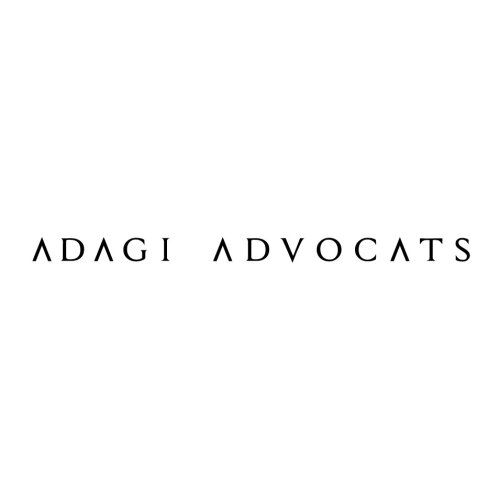Best Tax Increment Financing Lawyers in Andorra
Share your needs with us, get contacted by law firms.
Free. Takes 2 min.
Or refine your search by selecting a city:
List of the best lawyers in Andorra
About Tax Increment Financing Law in Andorra
Tax Increment Financing (TIF) is a public financing method commonly used to subsidize infrastructure and community-improvement projects, aiming to stimulate economic development. In Andorra, TIF provides a mechanism through which future gains in taxes are leveraged to finance current improvements, which are expected to benefit both the public and private sectors. The framework for TIF in Andorra is designed to encourage investment in underdeveloped or expanding areas, with a focus on sustainable growth and increased public revenue.
Why You May Need a Lawyer
Understanding and navigating the complexities of Tax Increment Financing can be challenging. Here are common situations where you might benefit from legal advice:
- Negotiating and drafting TIF agreements, which can involve complex financial and legal arrangements.
- Ensuring compliance with local and national laws, as misinterpretation can lead to legal repercussions.
- Managing disputes or controversies that may arise related to development projects using TIF.
- Seeking guidance in the application process for securing funds under TIF initiatives.
- Receiving expert advice on structuring projects to maximize the benefits of TIF while minimizing legal and financial risks.
Local Laws Overview
Tax Increment Financing in Andorra is governed by a combination of national and local regulations designed to ensure that TIF projects contribute positively to economic growth and development. Key aspects include:
- Eligibility criteria for projects to qualify for TIF, focusing on areas needing economic revitalization.
- Regulations governing the calculation and distribution of future tax increments.
- Requirements for community involvement and transparency in project planning and implementation.
- Guidelines for the sustainable and equitable use of resources generated through TIF.
Frequently Asked Questions
What is the main purpose of Tax Increment Financing in Andorra?
TIF is primarily used to stimulate economic development in underdeveloped or expanding areas by leveraging future tax revenues to finance current public infrastructure improvements.
Who can apply for TIF assistance in Andorra?
Generally, developers, municipalities, and other entities involved in projects that meet specific criteria laid out in TIF policies can apply for assistance.
How are TIF projects selected?
Projects are typically selected based on their potential economic impact, their alignment with community development goals, and compliance with legal requirements.
Is public approval required for a TIF project?
Yes, public hearings and community involvement are typically required to ensure transparency and gather local support for proposed projects.
How is the amount of the tax increment determined?
The increment is calculated based on the increase in property tax revenues stemming from the increase in property values due to the improvements made through the TIF project.
Are there limits on how TIF funds can be used?
Yes, TIF funds are often restricted to specific uses such as infrastructure improvements, land acquisition, and other development-related expenses.
Can TIF lead to higher taxes for residents?
TIF does not directly cause taxes to increase; however, it uses future tax increments, implying that improved property values and economic growth are expected to generate the tax revenue.
What happens if a TIF-funded project fails?
The risk associated with project failure can lead to financial setbacks. It's vital that thorough project evaluations and safeguards are established to minimize this risk.
Do existing businesses benefit from TIF?
Yes, existing businesses can benefit from infrastructure improvements, increased foot traffic, and enhanced community appeal resulting from TIF projects.
Are there any environmental considerations in TIF projects?
Many TIF projects incorporate sustainable practices and must comply with environmental regulations and impact assessments to ensure minimal negative environmental impact.
Additional Resources
Here are some resources and organizations that can be helpful:
- Andorran Government - for official regulations and application guidelines related to TIF.
- Local Municipal Offices - for community-specific TIF programs and information.
- Business Development Agencies - can provide insights and assistance for companies looking to benefit from TIF.
Next Steps
If you find yourself needing legal assistance with TIF in Andorra, consider the following steps:
- Consult with a lawyer specializing in finance and real estate to get expert advice specific to your situation.
- Attend a workshop or seminar on TIF to better understand operational processes and legal nuances.
- Contact local business support centers, which may offer free or affordable legal advice for new projects.
- Stay updated on any legislative changes or proposals impacting TIF within Andorra to make informed decisions.
Lawzana helps you find the best lawyers and law firms in Andorra through a curated and pre-screened list of qualified legal professionals. Our platform offers rankings and detailed profiles of attorneys and law firms, allowing you to compare based on practice areas, including Tax Increment Financing, experience, and client feedback.
Each profile includes a description of the firm's areas of practice, client reviews, team members and partners, year of establishment, spoken languages, office locations, contact information, social media presence, and any published articles or resources. Most firms on our platform speak English and are experienced in both local and international legal matters.
Get a quote from top-rated law firms in Andorra — quickly, securely, and without unnecessary hassle.
Disclaimer:
The information provided on this page is for general informational purposes only and does not constitute legal advice. While we strive to ensure the accuracy and relevance of the content, legal information may change over time, and interpretations of the law can vary. You should always consult with a qualified legal professional for advice specific to your situation.
We disclaim all liability for actions taken or not taken based on the content of this page. If you believe any information is incorrect or outdated, please contact us, and we will review and update it where appropriate.
Browse tax increment financing law firms by city in Andorra
Refine your search by selecting a city.

















